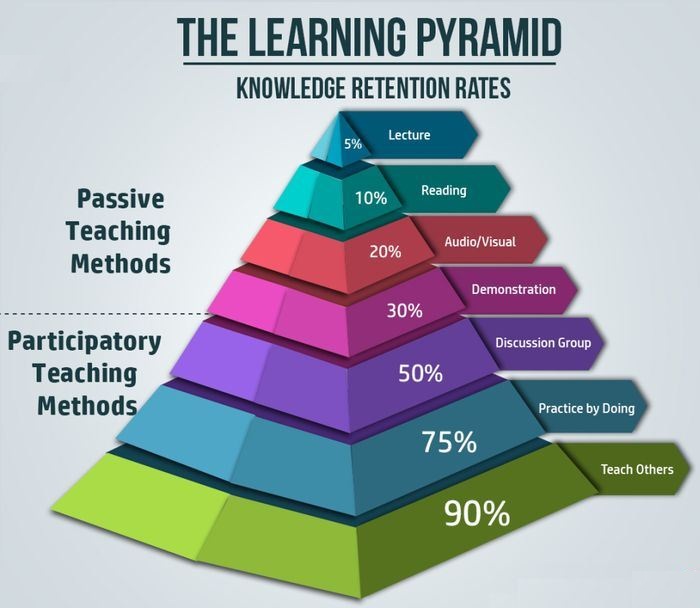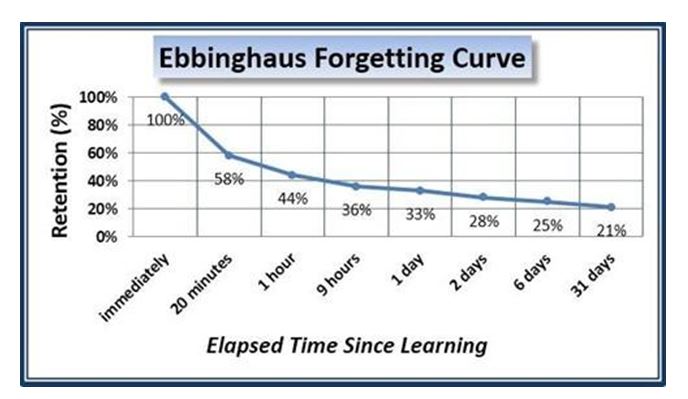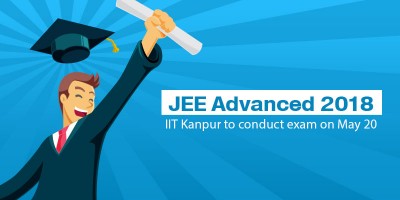State Board Commerce (XI-XII) - Test Papers
JEE Advanced 2018: IIT Kanpur to conduct exam on May 20
JEE Advanced 2018
2.21 lakh candidates are qualified for JEE Advanced 2018 of 11 lakh candidates who took the JEE Main this year. Admission for engineering courses in government colleges, NITs, IITs, and IITs are conducted through JEE (Joint Entrance Examination) which is conducted in two phases. JEE Advanced 2018 is carried out by IIT Kanpur in which candidates qualified in JEE Mains is eligible. The candidates who have qualified the JEE Mains are eligible for JEE Advanced 2018. JEE advanced questions which carry MCQs (Multiple Choice Questions) have reported JEE Advanced 2018 is to include short answer type questions too.
JEE Advanced 2018 Exam Date
JAB (Joint Admission Board) held at IIT Kanpur have decided that the JEE Advanced 2018 Exam Date is on 20 May 2018. Candidates registering for JEE Advanced 2018 must be done online. JEE Advanced application form should only be downloaded online; no other mode should be used. JEE Advanced 2018 registration starts from the fourth week of April 2018 and can submit it till the first week of May 2018. The candidates must scan and upload the required documents and images in a specified format. After applying for the JEE Advanced 2018, the candidates must keep a printout of JEE Advanced Application Form 2018.
English & Hindi are two languages in which the examination is to be held. The body of authority for JEE Advanced 2018 online will look after exam center allotment, security, infrastructure for exam day, verification of candidates and query handling of candidates.
With various levels of verification on the examination, the security is tightened in which verification of admit card and original documents at the entrance gate of examination center are included. Each candidate is provided with individual password after the verification of the documents. Signatures of the students are also ensured in the attendance register.
Common Myths and Misconceptions About Learning Debunked
We all perhaps agree that learning is a stepping stone to enhancing our knowledge, isn’t it? We keep learning throughout our lives, some via formal learning systems and a lot more from day-to-day on-the-job activities.
Children and adults believe certain practices can help them learn better. There seem to be fool-proof and proven age-old concepts on how to improve learning capabilities of an individual. However, you may be surprised to learn that many of these concepts are but mere myths and are thus quite misleading. Whether it is the marketing tactic of so-called experts who claim to improve your learning by using many of these methodologies, or the human tendency to believe hearsay and pass it on as well, the popularity of such myths runs deep within our social fabric.
Here are a few of these misconceptions:
Intelligence is decided at birth
This is untrue and study shows that one’s IQ can be nurtured with time.
Learning styles of individuals
There is belief that different people have different learning styles and these can be mapped with specific training techniques. The very basis of such categorization is faulty, and the learning methods cannot be directly mapped to those ‘compartments’. In fact, it is the experience of the trainer, cognitive skills of the learner, foreknowledge, etc. that play out heavily in effective learning.
The learning pyramid is the blueprint
Many theories around the learning pyramid have been published which tries to map the retention with the type of activity used – the lowest being 10% with ‘reading’ and going up to 90% with ‘doing’. Recent research has rejected the concept and refuses to slot the amount of learning in numbers.

Fancy fads of neuro-linguistic programming (NLP)
These are just misleading terms that link the psychological concept of boosting neurological skills to enhance learning. The data behind such claims is not sound enough.
The more time you spend, the better you learn
The efficiency curve goes down when the amount of time exceeds a certain saturation, and thereon learning does not increase linearly with time.
One subject should be learned at a time
This is contrary to an all-encompassing approach to well-rounded learning. Natural learning is able to map all aspects of a practical scenario better than compartmentalizing them into different ‘expertise areas’, each to be understood separately.
Reading and rereading improve learning
This is as away from the truth as possible. We are not computers to pick up the information that we come across, once or multiple times. Instead, quizzing or summarizing the read information in the form of relevant recall questions will yield better retention. Also, active learning promotes the idea of explaining the main ideas to yourself for reiteration.
The Science Behind the Making of Robomate+
It is good to be aware of what techniques will actually be effective in learning enhancement. At the same time, it is best to go the natural way. Most importantly, accept that learning is a continuous process and not a timed or periodic activity. So, consider learning an on-going activity that never stops at any age or time.
Tips for non-engineers to prepare for CAT 2017
There is a myth that the Common Admission Test (CAT) for admissions to the country’s best business schools is the best fit for students with a background in engineering. Those who believe this point argue that unlike engineering students, students from the humanities, arts and commerce streams lose touch with mathematics and quantitative aptitude, which are necessary to crack CAT.
However, Indian Institutes of Managements emphasize that CAT is not designed solely for engineers. Business schools like to have a good mix of students from different academic backgrounds. Nishant A (B.A. Economics), Shubham Goyal (BA English), Priyanka Shah (BCom), Surbhi Singhal (BCom) are a few examples of CAT toppers who do not have an engineering background. They not only aced CAT but were also successfully placed in renowned IIMs following it. The preparation for the entrance exam remains the same for all candidates. Here are some tips that you can follow to crack CAT if you are from a non-engineering background:
Study plan
Candidates should build a concise study plan ensuring adequate time for each section. Depending on one’s strength, they can give more weightage to the sections that need more focus.
Brush up the basics
It is important for candidates from a non-engineering background to understand the foundation. One of the easiest ways to do this is to brush up on their mathematics from the syllabus of classes 6 to 10. After revising the formulas from algebra, geometry, arithmetic and number system, you can switch to solving problems.
Read every day
Verbal ability is one of the most important sections in CAT. This section tests a candidate’s strength on reading comprehension and vocabulary. One should build a habit to read every day and pick a variety of texts like magazines, newspapers, articles and novels that are easily available online and offline.
Mock tests
Take CAT mock tests and analyse your performance. This will help you identify your weak areas. Depending on the analysis, you can then focus on solving more questions from the weaker sections in order to master each concept well before the exam. Time-bound tests help in improving the problem solving speed.
Avoid guess-work
Last but not the least, candidates should focus on accuracy. As there is negative marking in CAT, it is a must do to avoid guess work and to answer accurately. Candidates should spend adequate time in understanding each question in order to avoid faulty answers.
Rest assured that by making the best of the preparation time, non-engineers can definitely crack the CAT with a high percentile.
Blind from birth but that didn’t stop him
We all have limitations and are always trying to overcome them in our own ways. Then, there are others who have bigger challenges than we ever can imagine, and yet through sheer grit and determination they are able to not only overcome their limitations but also shine brightly. Do we ever pause to think how the someone with such inabilities manages to fend for themselves?
Here is the awe-inspiring story of Yagnit Vadhel, a young boy from Malad, studying at Yashodham High School & Jr. College, Goregaon. He has scored 93.8% in his SSC exams. What is extraordinary is that Yagnit is visually impaired, his eyes being sensitive to only light and colours.
The yearning for learning cuts across all barriers
Humans absorb learning from all quarters, don’t they? Everyone wants to keep their learning curve rising, and like to have new experiences to enhance their knowledge and skills. They say when God takes away one sense, He blesses with alternatives. A sharp and multi-talented boy, Yagnit also holds a degree in music from Allahabad University. He has a way with sounds and loves to dabble in singing. In fact, he has sung many Bollywood songs on stage, enrapturing audiences with his melodious voice.
Impairment no hurdle
Yagnit always wanted to study well. It was this relentless determination and hard work that made him learn Braille to be able to read his text. He has always been a high scorer and grade X should have been no different. But board exams were playing hard on his mind. He had always assumed that the SSC exams would be much tougher than the school examinations. And he was quite worried how he would be able to prepare for them with confidence.
Not satisfied with only school’s sessions, Yagnit and his parents tried to find out about extra tuitions. He clearly needed personal coaching as group classes would be of little use to him.
Technology can surely be one’s best friend
It was at this time that his aunt introduced him to Robomate+, a revolutionary technology based study app that helped him tremendously in his preparation for the intimidating SSC exams.
Although he could not see the videos, Yagnit found listening to the instructors’ explanations very helpful. What drew Yagnit to Robomate+ was the great flexibility that he had to play out lectures to clarify his doubts whenever he wanted. This was far better than a tutor, who would come in and leave at a designated time. Robomate+ was his anytime study companion and personal tutor! In his own words, Robomate lectures are very well explained and they really helped him understand the difficult concepts across many subjects.
The Science Behind the Making of Robomate+
The finale
Yagnit wrote the SSC exam successfully with the help of an appointed reader and writer. “The National Association of the Blind sent special teachers for him,” his father said.
This is just the beginning
A focused lad, Yagnit wants to study science further and is particularly interested in chemistry. He aims to become a scientist.
He is a source of inspiration for young and old alike, for exemplifying how one can achieve one’s dreams no matter what!
Also Read:
Shivayogi – Determination that will leave you speechless
New in College! What to look forward to?
So now you have successfully completed school and are raring to join college! There may be mixed feelings of excitement, anxiety, curiosity and eagerness to experience a whole new way of education? Understandably so!
There is a world of difference in school and college. Some good and some even better! As your cross this threshold, here are some of the changes that you with experience!
No worries about reaching on time
Your school routine was a strict time-clocked schedule. College routine is flexible and you will find yourself much more relaxed with timings!
Cool hangouts
You set out and make new friends in college and simply hang out with them not only in the college campus, but also in ‘student’-friendly cool hangout places! Some of these places are legendary and associated with each college for generations! The vibes that you feel here are simply inexplicable!
Usually no homework
There is little or no homework in college as compared to the bundles of homework that you had to struggle through at school. There will be assignments though and you will need to submit these on time, but they are much lesser than those at school, surely!
The Science Behind the Making of Robomate+
You WANT to go to college
The charm of college is such that you would want to go there regularly. It is not mundane or boring as school can get at times, there is so much activity happening all around! Cultural events, extra-curricular, inter-college events, and of course studies!
You have to manage your own time
You will find a lot of spare time at hand when in college. You manage your time, without your parents or teachers doling out it for you. They are your goals and plans to work out for yourself.
No Teachers. Only Professors
This sounds cool and believe me, it is! They are there to teach you, but it is you who will have to reach out to them when you need extra help.
No Assemblies and no Uniforms
These are the most exciting and obvious changes from school in college. But surely no one is complaining, right? In fact, dressing up is an integral part of college fun.
Every experience in life is unique and the times gone by will never come back. So, while you cherish the growing-up years in the school environment, enjoy the freedom and the first step towards independence and self-management, essential skills that you will learn in college.
Why Learners Forget Information and How to Remember What We Learned?
Our Brain is an organ that is taken for granted to retain as much information as possible. However, our brain also forgets. To explain how fast or slow the brain tends to forget information researchers refer to what is called – the forgetting curve.
What is the forgetting curve?
The forgetting curve is a graph of data that describes how brain retention power decreases with time. Hermann Ebbinghaus was the first person who studied about the human forgetting behavior in his experiments. He had performed a number of memory experiments on himself over a period of time. The data from the experiments were recorded and analyzed thereafter to give rise to the shape of the forgetting curve. He concluded that forgetting happens in an exponential way.

Given above is a typical forgetting curve. At the very beginning, the brain retention is 100%, that is, at the time point when you actually learned some new information. As shown in the graph, with time the retention drops in a sharp manner sharply down to around 40% within a short span of time.
Explaining the Forgetting Curve
According to the forgetting curve maximum memory loss happens during the first few days. Later the rate of forgetting gets slower as shown by a lesser steepness on the right side of the graph.
Coming to the forgetting speed, it depends on a bunch of different factors:
- The difficulty level of the information that you acquired or learned.
- The ease of relating the new piece of information to existing facts in your brain
- The mode of information representation (audio, visual, audio-visual, etc.)
- The conditions under which you learned the new information. For example: normal or stressed condition.
- Your physical health conditions. For example: rested or tired
Everybody does not learn in the same manner
Every person differs in their capacity to absorb, learn as well as retain information. However, the shape of the forgetting curve for every individual for base tests (like memorizing nonsensical words) is almost identical. So, the differences that are seen from person to person in retaining information arise due to the difference in their acquired learning behaviors.
Also, there are different kinds of learners. Some people transform the new piece of information into a memory representation that seems more suitable for their individual personality. For example: People who retain more from audio mode are called as audio oriented learners and the ones who are more comfortable with video lessons are called as visually oriented learners. There are also kinds of people who naturally have a better capacity to use the brain memory hooks and other kinds of mnemonic techniques. Hence they tend to remember effortlessly and can relate the new information to the ones that they already are aware of.
Read: How to Memorize What You Learn Better
Tips to increase your memory:
- Try to co-relate new information with something that you already know. This way you will be able to use memory hooks and mnemonic devices to remember the new information with respect to the old ones.
- Try to recall or activate the newly learned information at regular intervals of time. Do not re-read but recall. This will force your brain to activate that memory and thus deepen neural connections associated with it.
- Make use of the spaced repetition software that calculates the exact time when you will make the most out of your study revision, i.e., the exact time when you are about to forget an information, spaced repetition will alert you to revise it again.
- Use the mode of information representation for learning that suits you best. Example: audio, visual, audio-visual, etc.











